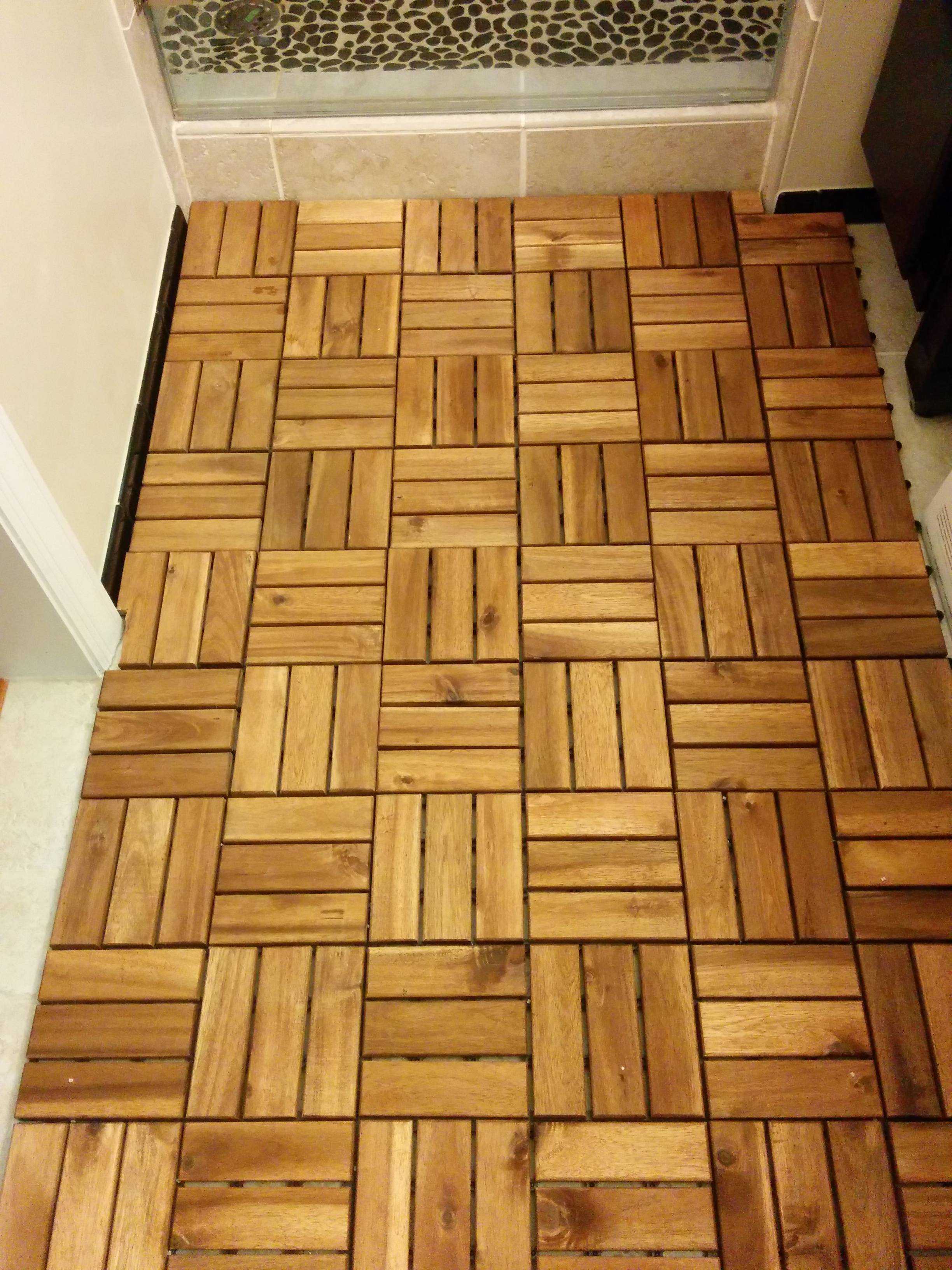Even though you have good reason to suspect that the problem here is behavioral, the first step should always be a through checkup with your vet. Inappropriate elimination can have several medical causes. Feline interstitial cystitis, in particular, is an inflammation of the bladder walls that is thought to be caused by stress (which can be caused by moving).
In addition, if you believe that the inappropriate elimination is caused by stress (especially a big stress like moving), your vet may be able to give you some medications that will help. Many of these medications can be made into a dermal gel that will get rubbed into their ears, so there's no additional stress to medicate the cat.
The next step is realizing that your cat is behaving this way for some purpose. Towels and linens are more acceptable than the litter box for some reason. The goal is to make the litter box the most appealing option. Look at the difference between each elimination site and the litter box and see if you can make the litter box more like the elimination site. The series of questions I would consider:
- Location of the litter boxes versus frequent elimination problem. Does it seem like your cat wants to go in a particular room or rooms? Perhaps you should put a litter box there.
- Cleanliness. If there's waste in the litter box, that's a deterrant to some cats (one of ours refused to use the box if anyone else had used it until we totally washed the box and put in fresh litter).
- Comfort of the litter substrate. Linens/towels are much softer than most clay based litters, and may be uncomfortable on the paws (especially if the cat was declawed). Switching to pine or newsprint may help. (As a note, if you are using a litter liner, stop, they are disruptive to the digging process)
- Safety. If the litter boxes are tucked away in some corner with no sight lines where it's easy to get cornered, your cat may feel unsafe going there. Try adding more boxes in an open area.
- Odor.
- Litter Box - This can be related to cleanliness, but can also be affected by perfumed litters or cleaners. In short - don't use any scents around your cat's litter box.
- Towels - Many cats find citrus repellant, so you could try a citrus detergent or fabric softener for your towels to see if that helps. I wouldn't suggest it on your rugs or bed because you don't want to make them uncomfortable in your house totally.
- Previous accident sites - make sure that you throughly clean any previous accident site with an enzyme cleaner and check with a blacklight afterwards to make sure that any trace of the scent is gone. If your cat smells urine there, it will just encourage him to urinate there again.
- Shape of litter box. This is related to safety/odor. A closed litter box is easier to get trapped in, and holds the odor, so generally open litter boxes are better.
Since you believe stress is a factor, I would suggest working to reduce stress in your household. Moving is a VERY stressful time, and cats need consistency! Here are some suggestions:
- Try providing different sleeping places. A cat's ideal sleeping place is warm (sunbeam, covered house, thick bedding), with a good view (think elevated - a wall shelf, a cat tree, or a wide window ledge perch), and often partially secluded (again, a covered bag/house, or thick bedding)
- Make sure your cat has pathways through the house so that he can travel through the house without confronting anyone (human, cat, or any other pets you may have). Usually these paths are elevated to promote a sense of safety in the cat. A good resource is Jackson Galaxy's Catification pages, but the main idea is to make sure there are pathways and no deadends).
- Reduce the competition for resources among your cats. Start feeding your cats separately to reduce the feeling of competition among them for food. Also add more water bowls/fountains to different locations in your house. Make sure you have at least one more litter box than you have cats (so, 2 cats = 3 litter boxes).
- Make sure you spend enough time in interactive play (with each cat). This utilizes their hunting skills and helps keep their minds sharp. If one cat is bored and attacking the other cat, this will help reduce the number of attacks/harassment.
- Have a consistent schedule as much as possible. Try to feed them at the same time each day, play at the same time each day, and snuggle on the couch at the same time each day. If they can count on these interactions, their stress level should decrease.
In addition, some folks have seen good results with pheromone treatments like feliway, or herbal treatments like rescue remedy.
Finally, you'll have to remove opportunities for inappropriate elimination as much as possible. Make sure you pick up after yourselves. If getting the cats out of the bedroom is a problem, train them (to voice or clicker) to leave the room (it takes us about a year to train a cat to respond to a vocal "out", but we don't use special training sessions, just tell them "out" and pick them up when they don't walk out themselves).
One of our girls will urinate on towels/bath mats if left in the bathroom near her litter box, so we used Ikea Runnen to make a bathmat (ran out of tiles on the right and haven't gotten back to the store). As an added benefit, the litter falls through the gaps so it's neater than a traditional mat, too.

